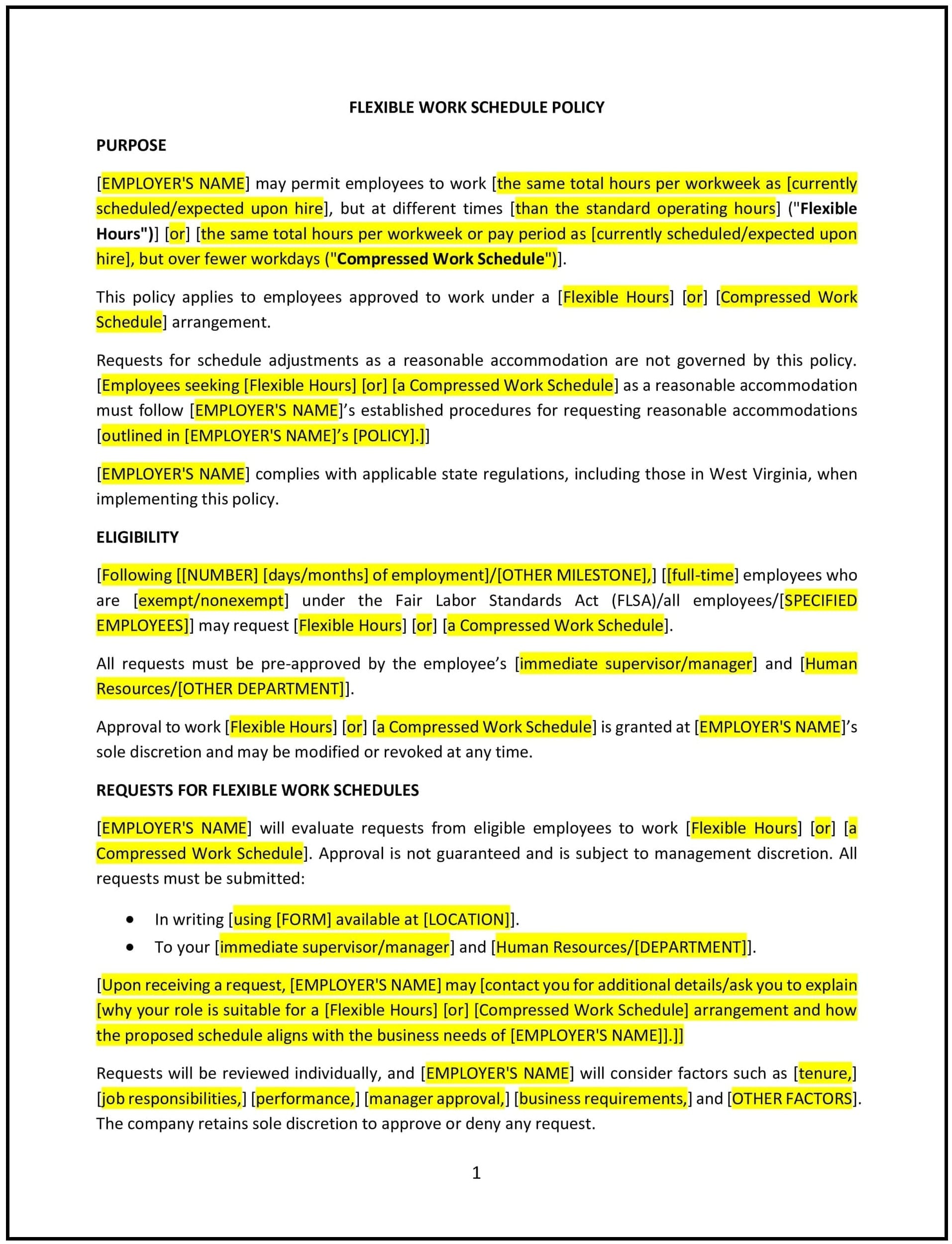Flexible work schedule policy (West Virginia): Free template
Got contracts to review? While you're here for policies, let Cobrief make contract review effortless—start your free review now.

Customize this template for free
Flexible work schedule policy (West Virginia)
In West Virginia, a flexible work schedule policy provides employees with options to adjust their working hours or locations to accommodate personal needs while maintaining productivity. This policy supports work-life balance, increases employee satisfaction, and improves retention by offering alternatives to traditional work schedules.
The policy outlines eligibility criteria, available scheduling options, and the process for requesting and implementing flexible work arrangements.
How to use this flexible work schedule policy (West Virginia)
- Define eligibility: Specify which roles and employees qualify for flexible work schedules based on job requirements, performance, and company needs.
- Outline scheduling options: Include examples of flexible arrangements, such as remote work, compressed workweeks, staggered hours, or part-time schedules.
- Provide the request process: Detail the steps employees must take to request a flexible schedule, including submitting proposals and obtaining managerial approval.
- Establish performance expectations: Clearly define how productivity and accountability will be measured for employees working flexible schedules.
- Support compliance: Ensure the policy aligns with West Virginia labor laws, including wage and hour regulations, to avoid legal risks.
Benefits of using a flexible work schedule policy (West Virginia)
- Improves work-life balance: Allows employees to better manage personal responsibilities, leading to higher morale and engagement.
- Boosts productivity: Enables employees to work during their most productive hours or from locations where they are most efficient.
- Increases retention: Demonstrates the company’s commitment to employee well-being, improving loyalty and reducing turnover.
- Supports compliance: Aligns with West Virginia labor laws to ensure fair and lawful implementation of flexible work schedules.
- Reduces overhead: Offers opportunities to optimize office space and resources by accommodating remote or alternative work arrangements.
Tips for using a flexible work schedule policy (West Virginia)
- Communicate clearly: Share the policy with employees during onboarding and ensure it is easily accessible for future reference.
- Train managers: Provide training to supervisors on evaluating flexible work requests fairly and managing remote or alternative work arrangements effectively.
- Set boundaries: Clearly outline expectations for availability, communication, and performance to ensure accountability.
- Pilot new arrangements: Test flexible work options with individual employees or teams before expanding them organization-wide.
- Review periodically: Update the policy to reflect changes in workplace needs, West Virginia labor laws, or industry trends.